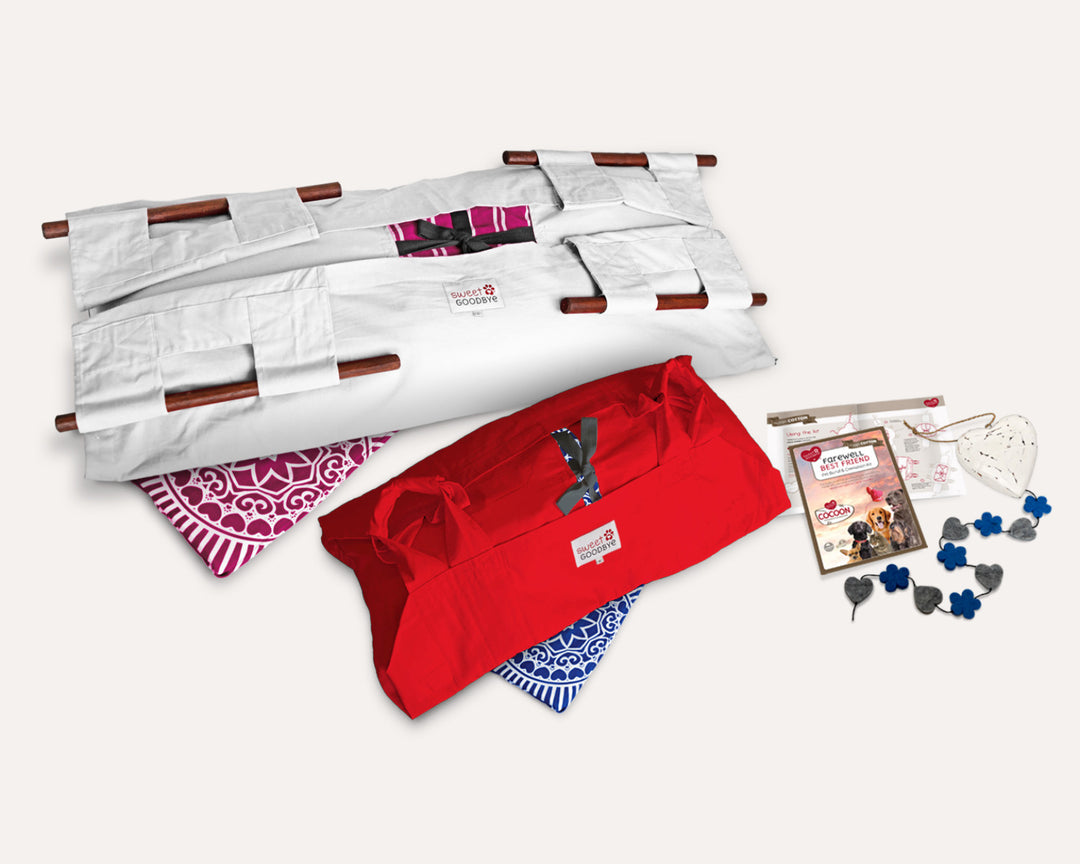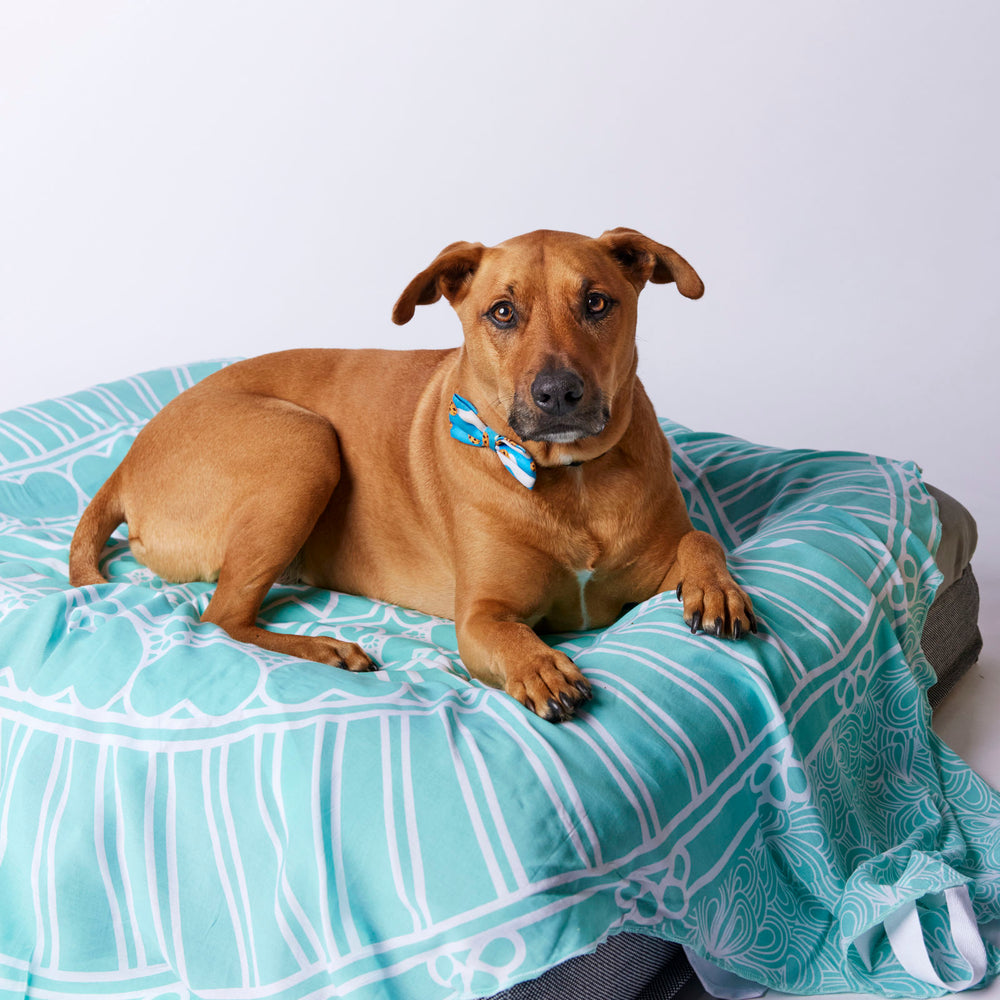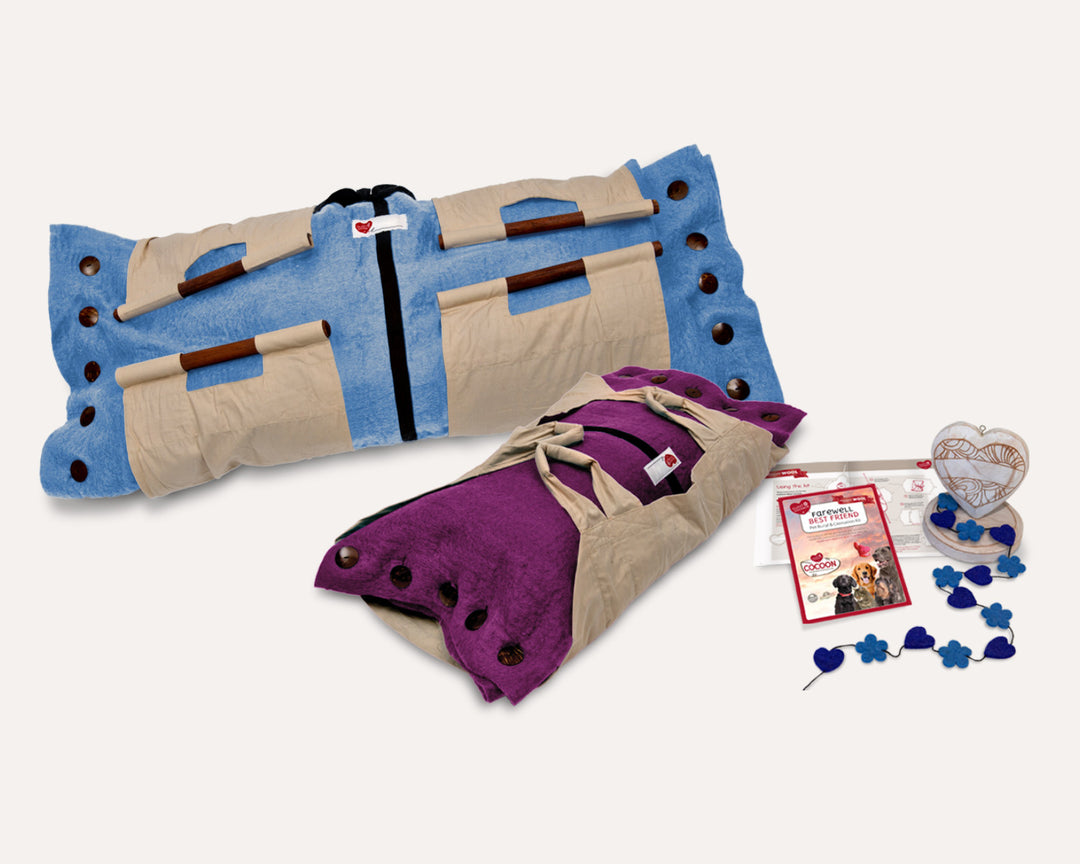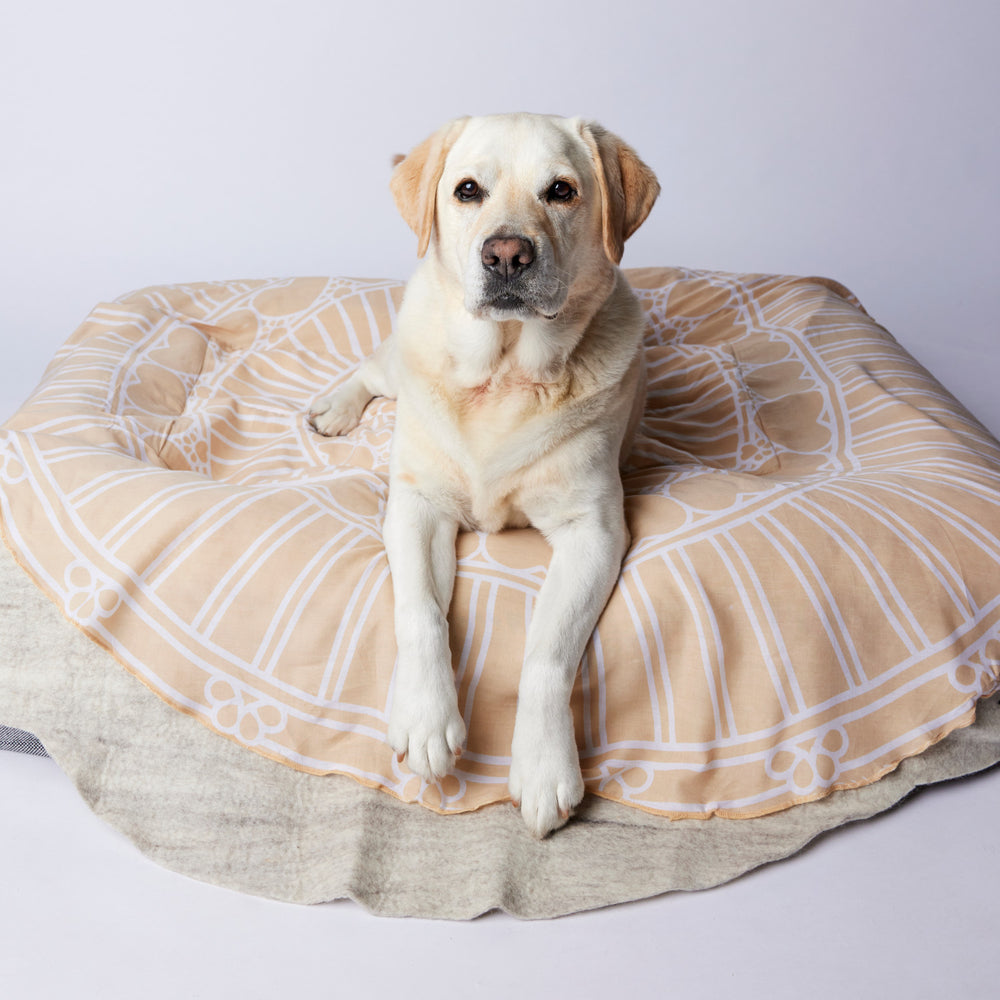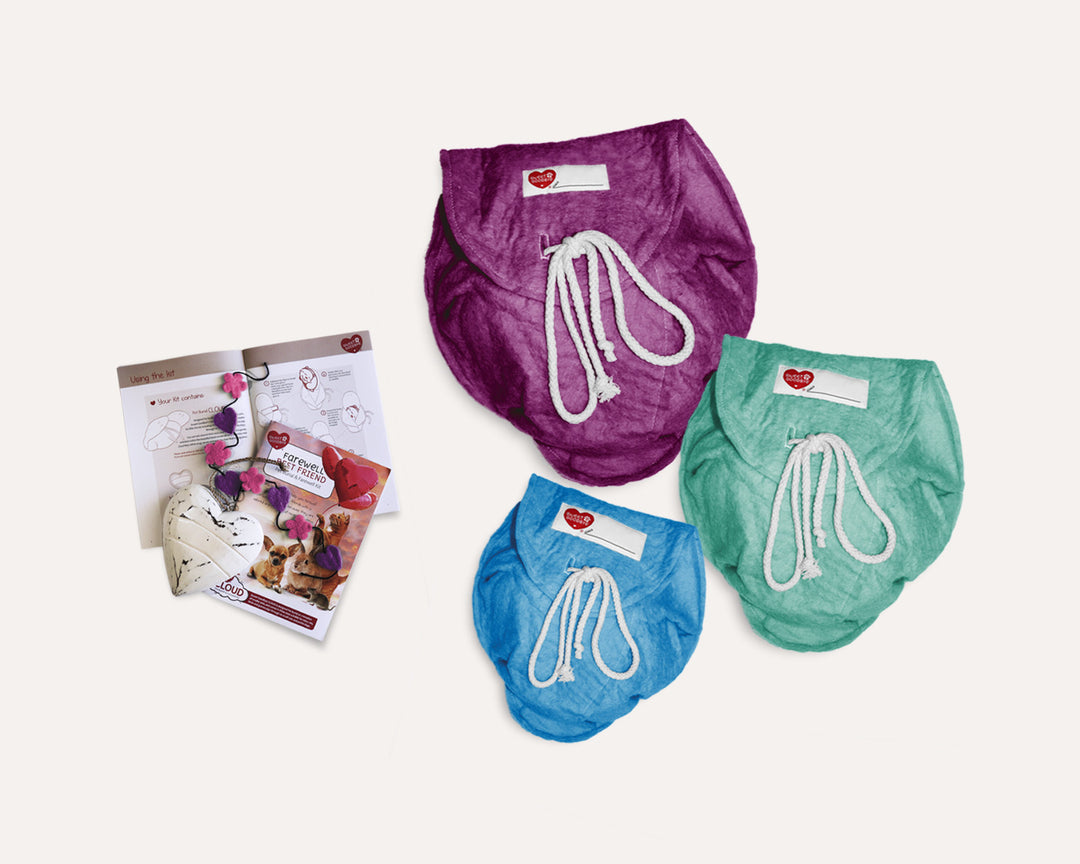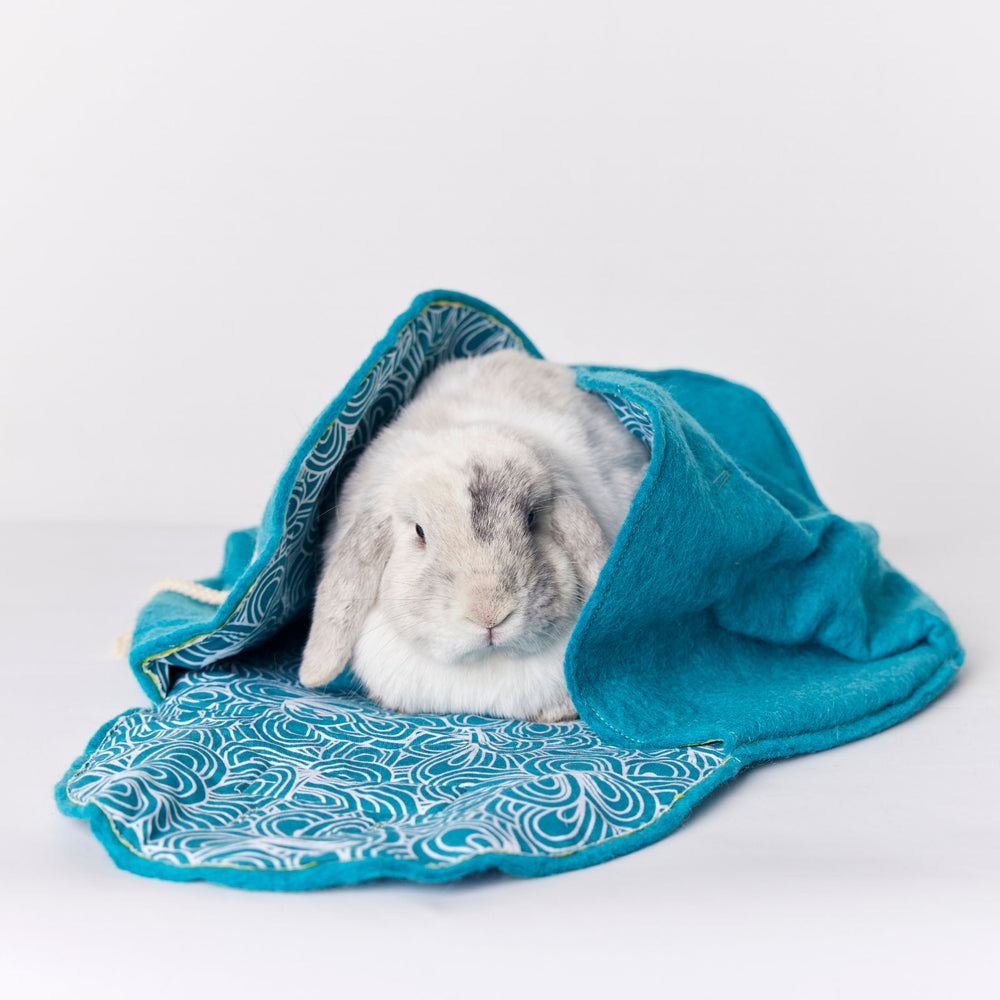Born from her own search for a more compassionate aftercare option.
When a beloved pet reaches the end of their journey, the grief is deep, but so is the love that lingers. For many, the final act of care is choosing a farewell that reflects the bond they’ve shared, one that is gentle, respectful, and filled with dignity. At BlueLeaf Pet Cremation, Principal Catherine McKay has dedicated her life to offering exactly that.
Born from her own search for a more compassionate aftercare option, Catherine discovered water cremation - a process as tender as it is environmentally kind. Today, she walks beside families through one of life’s hardest moments, ensuring their pets are cared for with empathy, compassion, and a deep understanding that they are more than just animals, they are family.
This is not simply about cremation. It’s about connection, ritual, and honouring a lifetime of unconditional love. And for Catherine, every pet’s story matters. Every goodbye matters.

What led you to start BlueLeaf Pet Cremation?
Catherine: It's a bit of a personal journey that I led into this. I was looking for aftercare options for my dad several years ago when I came across water cremation. And the idea of it, the gentleness, the eco-friendly side of it, just really resonated with me and stuck with me. And I just kind of kept researching. Over a few years we were looking at going back into business and then we decided that this was what we were going to do.
What is water cremation?
Catherine: Water cremation, it is the most gentle and eco-friendly option for our pets. It kind of mimics the natural process, the breakdown of the organic materials we're still left with the bone remains or what we refer to as ashes at the end of the day. And then that is what is processed and returned to pet parents in an urn.
What makes the process eco-friendly?
Catherine: The main reasons that it is eco-friendly is we do not use fossil fuels and we don't emit our CO2 through the process. And then everything at the end of the process is all sterile. Personally, we use sustainable urns and vessels and yeah, that's kind of the main thing.
When people ask you what do you do as work, what do you say to them? How do you explain to them what it is that you do?
Catherine: It's a job of empathy, compassion, and most of all love for pets. We are able to help people in one of the most difficult times and we're able to care for animals in a different way.
In your experience, when you're talking to families in their pets final days or when they're preparing, what's been the details that help?
Catherine: I think the biggest thing for pet parents is how gentle the process is. It's a gentle flow of water. It's not that forceful heat of the flame. So that also allows us to return more ashes to parents. We're only a small family business, so pretty much I do everything from pickup through to the return. So I think for people to know that that one person is looking after their pets, that whole journey is also a nicer kind of way as well.
What's one of the things most people don't realise about saying goodbye to a pet or the process of saying goodbye to pet that you've experienced?
Catherine: A lot of people still don't know that cremation is an option, let alone water cremation. So we still need to get that awareness out to pet parents also as well, when they are planning to say goodbye, most people will think that they have to go to a vet clinic, whereas a lot of vets now are also offering home services. So you can be in the comfort of your own home, your pet can be in familiar surroundings, and it's a lot more of a gentle goodbye. I think trying to get that awareness and education out to people. I know they don't want to plan things, they don't want to jinx it, but to be prepared and to know the options they've got is a really important thing to know. As a pet parent.
You’ve obviously witnessed a few. Has there been one in particular that you really sit back and go, that's why I do this?
Catherine: They all make me do that. I think sometimes you kind of connect more - maybe it's the type of dog or pet that you've had previously or the circumstances that it's gone under. But each and every one of them, I still shed a tear or for. So I feel them all. All the stories are important.
For families saying goodbye, if there's one small thing that you could recommend to them, what would that be?
Catherine: I think when we're planning to say goodbye, it's just getting the information, knowing your options being planned, and then that way when that time comes, that you've made the best decisions for your pet, but also for yourself. It's after the fact when people learn of certain options that they could have had and that they didn't do, they can feel quite bad or guilty about it. So I think that's definitely one of the biggest things.
What would be a good goodbye to you? What would that look like?
Catherine: I've had a few goodbyes to my babies. We have always done it at home. We've had a bit of a bucket list for the final day. We've always gone down the beach or the river. We've eaten all the things that we are not meant to eat. Lots of cuddles and photos. And then we've been at home in the pet's favorite place altogether. And then we've had a home vet come by to perform that goodbye. And that was really obviously, but it was an important part of our healing process.
The healing process is an interesting thing. So do you have children in that or is it just so you have children, had they been part of that process and how did you involve them?
Catherine: I've always been very open with my children. So we've always kind of talked about the day. We knew that it's going to come, so we talked to them about it, what we're going to do, do they want to be involved? I've got three kids and the last goodbye we had, they were all under 12 and they made the decision to be there. They wanted to be part of it to hold the dog to cuddle the dog. They weren't too happy when our dog left a little goodbye gift. Our pet decided to relax and release its bowels. So that actually turned into a little bit of a joke later on. But yeah, kids are really resilient. We've got to give them more credit for that.
If there's someone out there who's unsure where to begin when it comes to planning, what to do, what to research, talk us through what you would suggest that they should do.
Catherine: When planning to say goodbye, talk to friends, family, other pet owners about their experiences, what they did, who they went through, recommendations. We've got a little bit of information on our website on planning and different things to think about. Talk to your trusted vet or give me a call. I'm happy to have a chat with people and kind of guide them through the process.
If you could change one thing in society about how we view pet loss, what would that be?
Catherine: There's still some people that don't see our pets as family. And for those people that have had a loss of a pet, there's still those comments “it's just a pet”, but it's not. There's still a little bit of a stigma for that, but a lot of people now have made that move and humanised our pets and understand that they are family. Employers are allowing days off work for pet loss. So I think we're moving in the right direction for sure.
Is there a ritual or a comfort or a gesture that you think that every pet deserves at the end?
Catherine: I think everyone's different. Everyone wants to say goodbye. I've had people that set out blankets and flowers. There's other people that have had a picnic rug down and said goodbye down at the river. I think just do what you and your pets love to do.
Tell us about BlueLeaf Pet Cremation itself. If someone was to contact you, what happens?
Catherine: We pretty much offer a service from pre-planning to cremation. If anyone has any queries about preparing to say goodbye, they're more than welcome to reach out, have a chat about the different options. We offer 24 hours assistance. We can collect from home, vets or some people like to be part of their pet's final journey and come to us and bring their pets to us. We then go through and have a bit of a chat with them about the different options. One beautiful thing that we do is our keepsake service.
We take little nose boobs, we can take some paw prints and we can take some fur or we do a lot of birds and things as well, so we can do some little feathers - so we can talk to pet parents about different ways of memorialising their pets. So some people still might want to scatter, some people might want to bury, others might want to keep them at home. So we'll kind of go through the different vessels that we offer.
Tell us a bit more about the water cremation process.
Catherine: We use a low pressure machine, so it's a little bit different from human machines. It takes anywhere from four hours to 18 hours to cremate depending on sizes.
Generally with any kind of heat cremation, humans or pets, there are about 3% of our body weight as remains. But we do end up with more with the water cremation because it is so gentle on the body, you don't have the force and the heat of the flame because unfortunately you do lose a bit of bone in the traditional cremation. We call them cremains, cremated remains, a lot of the time. I still say ashes though because people are still learning about this process.
What can people do with their pet cremains?
Catherine: We do get a lot of people that do ink tattoos with the ink keepsakes that we do. And these days you can actually get the cremains mixed in with the ink. And as part of your tattoo. It's really quite beautiful actually because. There's a lot more things, a lot more products and memorabilia items out there these days. You don't just have to be in an urn on a shelf. You can get paintings with the cremains mixed in. You can get pottery items where they mix the cremains in with the glaze. So your actual product has some of the cremains in the pottery. It’s really quite beautiful what people are doing out there now.
What legacy do you hope your business will leave for the pet community?
Catherine: BlueLeaf was the first fully licensed facility in Western Australia , so hopefully that will be a bit of a legacy that we leave by introducing it to pet parents here. And hopefully as time and education and awareness increases, we can extend those services a little bit further. I'm really proud of what we've been able to create. All the comments and reviews that we get back from customers that I think pretty much says it all.
What do you think are the synergies between human and pet deaths, how are the rituals and ways to say goodbye becoming closer and more similar?
Catherine: I think for a lot of pet parents, they are more than pets. They are family. We have deep connections. They're our greatest teachers. And when it does come time to say goodbye, I think they want to do it in a respectful and dignified way just as we do with people. And that's a really important way of, I guess, for us to show our love and to help us in our healing journey as well, to know that we have done that for them for their lifetime of unconditional love.
We have a lot of couples that haven't been able to have children or so their pets are their babies, so it is a huge loss to them. My dad, he suffered a lot of mental health. The neighbor's golden retriever basically lived over at his house. So she would come over every day, sit at the door and wait for him, and then they would go down the beach every day. And that was a really important connection for him emotionally, mentally. It made him get out of the house and do physical exercises. He had to do it for the dog. So yeah, they play a huge part in our lives - when we lose that, that can hit us really hard.
Has there been anything that's been unusual or not expected?
Catherine: I think there's just been so much love. I walk into a room and though it's a room of loss, it's so full of love and that's where I kind of get that motivation to do what I do. It's really beautiful to see, not beautiful that people are upset, but just beautiful to see that connection. I've had a room full of 20 people, the whole extended family being there together for the dog. There was a beautiful one where they went down the river at sunset and the vet came to the river as well, so they said goodbye there and it was just the most beautiful, beautiful thing. And you just think, I hope when I get older I'm surrounded by all of my family and that much love. So yeah, there's little things like that where you go, that was lovely.
We thank Catherine, for opening her heart and sharing the deeply personal journey behind BlueLeaf Pet Cremation. Her compassion, dedication, and unwavering respect for pets and their families remind us that saying goodbye can be as beautiful as it is heartbreaking. Through her work, she gives pet parents the comfort of knowing their beloved companions leave this world with dignity, gentleness, and love, a gift that lingers long after the final farewell.




